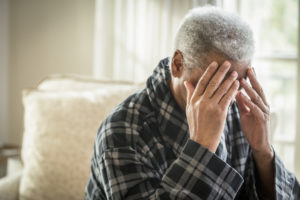
The nation’s largest nursing home association said it is committed to fighting racial disparities in healthcare and drew a link between George Floyd, a black man who died at the hand of police, and the disproportionate number of black residents who tested positive for COVID-19.
Leaders of the American Health Care Association/National Center for Assisted Living on Wednesday said this year is one of the most challenging for long-term care and the country as a whole thanks in part to both critical issues: COVID-19 and racial injustice.
Multiple studies have indicated that nursing homes with more black residents and minority residents are at an increased risk of having coronavirus cases.

The findings have also come as thousands of people around the country have protested following Floyd’s death, which was caused by a Minneapolis officer who kneeled on his neck for about nine minutes while he was handcuffed.
“Concurrent with George Floyd’s tragic death is evidence of racial inequality in the very virus that we are fighting,” AHCA/NCAL President and CEO Mark Parkinson, AHCA Board Chair Debbie Meade and NCAL Board Chair Helen Crunk said in a joint statement.
“The data is clear that a disproportionate number of COVID-19 cases and deaths occur among minorities. Most disturbing is that this appears to be true both in the general population and in skilled nursing facilities as well,” they added.
The leaders condemned the “senseless killing” of Floyd, and those before him, supported the right to peacefully protest, committed that long-term care facilities should be an “oasis of freedom” for all races, religions and beliefs, and promised to fight against factors that have created profound healthcare disparities in the country.
“We pledge to our residents, their families, and our employees, that we are not giving in to this fight against COVID-19,” the leaders said.
“The first half of 2020 has been extremely difficult for our country and created unthinkable challenges, but it will not defeat us and together, we will make positive differences,” they concluded.





